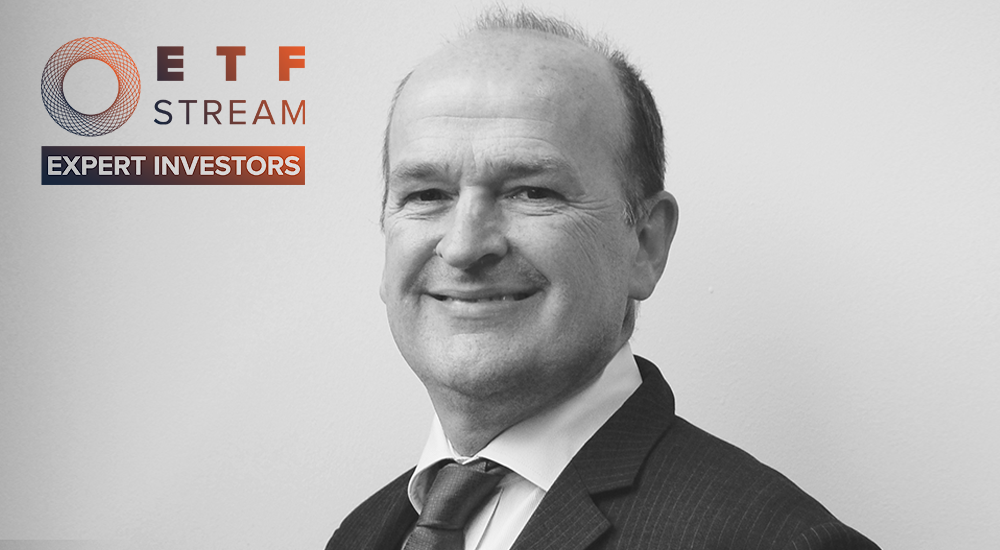Next in the hot seat in ETF Stream’s Expert Investors series, where we interview fund buyers about their ETF usage on a fortnightly basis, is Peter Sleep, senior investment manager at 7IM.
Sleep joined 7IM in 2007 where he helps run the firm's AAP fund range which has $3.4bn assets under management. Prior to this, he was an analyst at MF Global and held a number of roles at Citi between 1990 and 2003.
How much of your portfolio is made-up of ETFs/index funds?
I would estimate that around 75% of our funds are invested in index products including ETFs, index funds and futures. We are agnostic about the vehicle as we are trying to achieve the best outcome for our clients.
When did you start investing in ETFs?
My firm has been investing in ETFs since the early 2000s. I started to invest when we launched the AAP funds in March 2008. These were funds with an active asset allocation but passively implemented using mainly ETFs at the time.
ETFs were a lot more expensive 10 years ago, for instance, a FTSE 100 ETF or an S&P 500 ETF would typically be priced at around 40bps, so we soon found that tracker funds and futures were clearly a lot cheaper.
Which asset classes do you tend to invest in through ETFs?
We use ETFs mostly in fixed income at the present time. For a long time, we hardly had any ETFs as we found tracker funds and futures were more cost effective.
We have recently started to increase the use of ETFs as the development of interest rates recently have made futures less attractive.
We used to invest our futures collateral out to about 18 months to get a small pick up on 3-month gilts, but the flattening of the yield curve recently has eliminated the extra basis points we used to earn.
Which areas would you avoid?
I have been asked to review a lot of thematic ETFs for ETF Stream and have been pretty clear that I am not a big fan of thematic ETFs.
I can see why they are issued but I think they are often faddish, volatile and expensive and that most investors are better off sticking to the core asset classes.
What is your methodology for selecting ETFs?
I try to keep it simple. Is an ETF UCITS, does it track the index we want, is it compliant with the regulations, is it tax efficient and what is the cost?
I like to understand what is going on in the background, but I do not get too hung up on things like stock lending or the physical versus synthetic debate if I can help it.
Do you have an ETF provider preference?
No. Whatever is the best provider for the client is key, not my personal preference.
What ETF products would you like to see more of?
I like to see more ETF products full stop. I like to see innovation which tells me the market is healthy.
I also like to see new products, even if they are “me too” products, as that often involves price competition which is good for my clients.
It is obvious we will get more ESG products and I think we will get more Chinese products over time.
China is now such a big part of the EM equity benchmark that it may soon be carved out as a separate territory, rather like Japan is today, and then Chinese equity products will really take off.
Chinese credit is only really accessible through active managers or non-UCITS funds at present, although it is a huge market. It will take time, but it will be interesting to see what ETFs become available in Europe.
Are there any areas ETF providers could improve?
The vast majority of ETF providers do an excellent job, although inevitably there are UK-based ETF providers who have not got the basics right on things like UK tax reporting status or do not answer the phone over lunchtime or after 4pm. These issues though are institutional and I doubt they will change.
Expert Investors
Expert investors is a series brought to you by ETF Stream where on a fortnightly basis we interview the key individuals from across the fund selection and research space about the ETF ecosystem.
Fund selection plays a crucial role in portfolio construction. Once the asset allocation decision has been made, these individuals need to decide how they want to be exposed, be it through a mutual fund, investment trust or ETF.
Over the years, ETFs have become an increasingly important part of any investor’s toolkit. This series will show how the key players across the fund selection space use ETFs in their portfolios while asking what more can be done by the ETF providers to help with this increasing adoption.
To read the previous edition of Expert Investors with John Leiper, CIO of Tavistock Wealth, click here.



